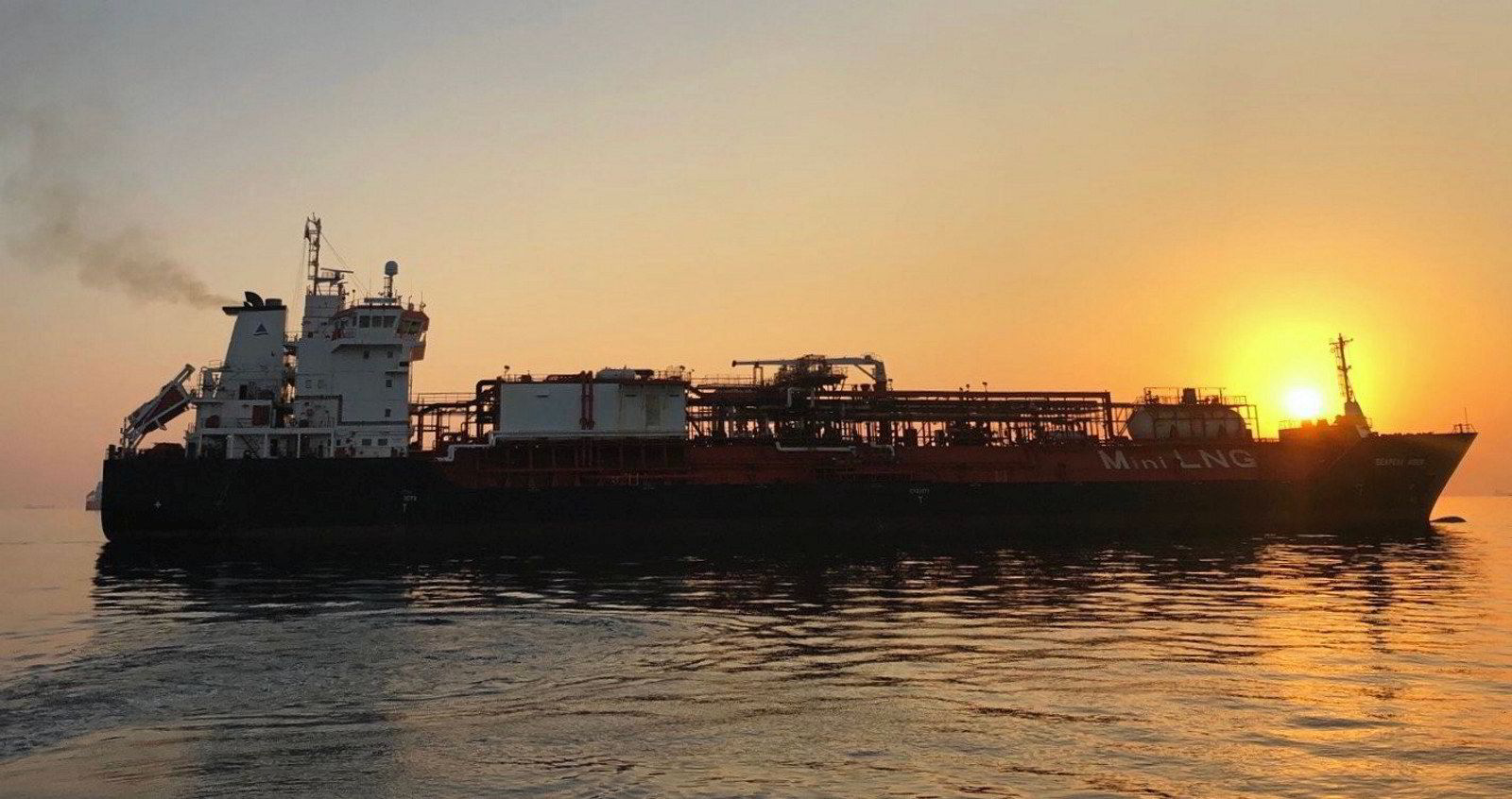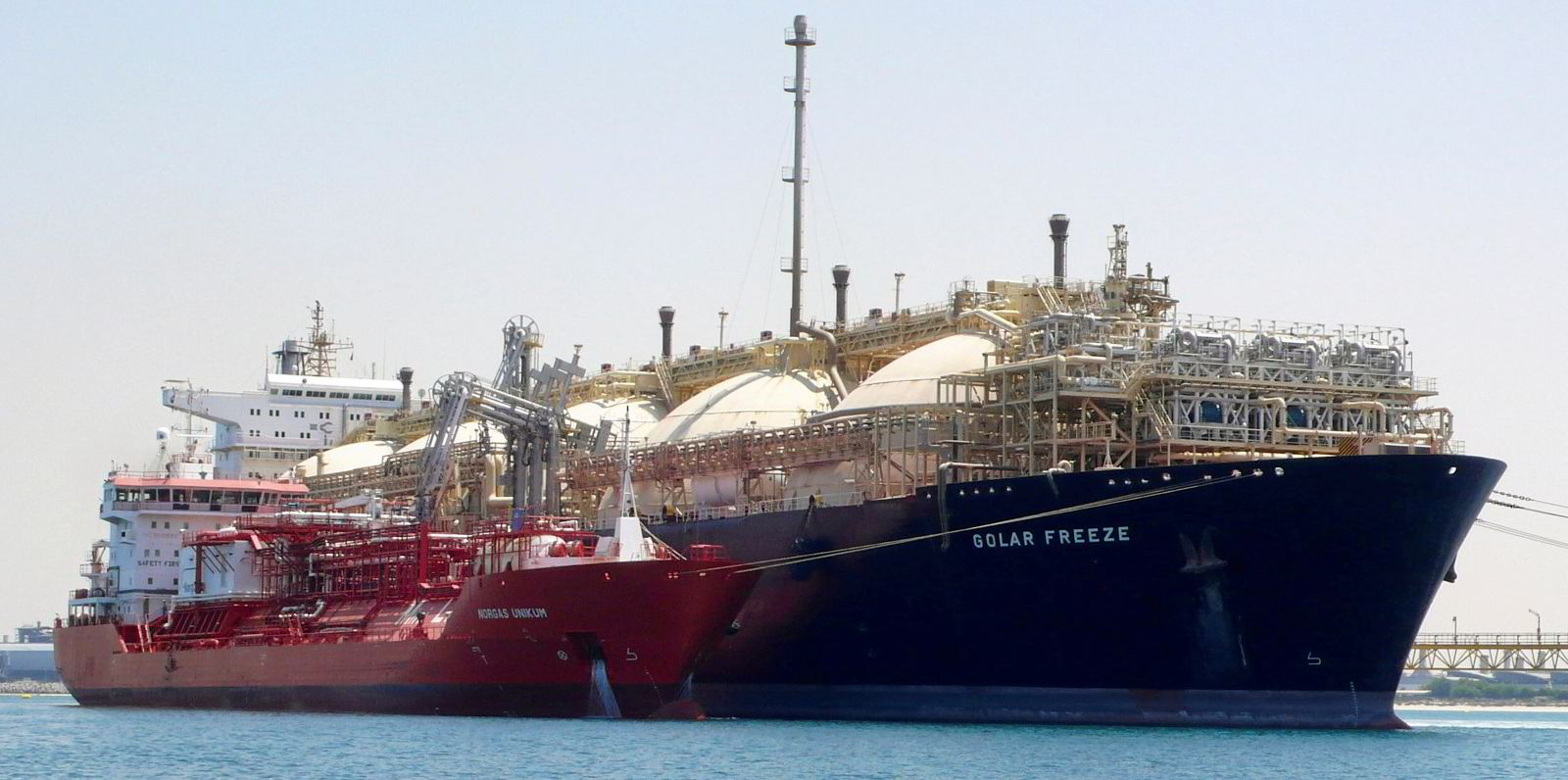Bunker supplier Titan has bought two small-scale LNG carriers from Canadian shipowner Seapeak as it moves to expand its operations geographically and to larger vessels.
The company said it has bought the 12,000-cbm Seapeak Unikum (ex-Vision Spirit) and Seapeak Vision (ex-Unikum Spirit, both built 2011) without giving any price details on the two ships. Brokers priced each ship in the mid to high-$20m range.
Titan said it plans to retrofit the pair to make them suitable for both trading and bunkering LNG, along with bio-LNG or liquefied bio-methane and in the longer-term hydrogen-derived synthetic LNG or e-methane (e-LNG).
After the upgrades, the vessels will be able to load at all major LNG terminals and perform ship-to-ship bunkering and loading operations.
Titan fleet director Douwe de Jong said: “The team is currently specifying the upgrades and finding a suitable shipyard for the retrofit work.”
The two Seapeak ships will join the Titan fleet in March and operate in the Mediterranean and north-western Europe.
Titan, which declares it is committed to supplying all clean fuels that can decarbonise shipping, transport and industry in a substantial way as they become feasible, said the two ships will cater for an increased demand for LNG and bio-LNG in these regions.
“The two new additions to the fleet allow Titan to deliver fuel to a wider range of LNG-powered vessels, including all container ships,” the company said.
The Amsterdam-headquartered bunkering specialist flagged up that the vessels are fitted with stainless steel cargo tanks that enable them to carry propylene, ethylene and ammonia.
Titan said the vessels are also capable of doing “more complex projects”, including gas-up cool-down operations and commissioning parcels.
The 12-year-old ships, which were originally ordered by IM Skaugen at AVIC Dingheng Shipbuilding in China and later sold to Teekay, were built with diesel engines and cannot be fuelled with LNG. Titan officials said this aspect of their design is “on the cards” to be addressed in future retrofits.
The Dutch company, which was formerly known as Titan LNG, is not revealing what it paid for the ships.
But it said both the purchase and the retrofit are financed by European financial leasing provider Sole Shipping Group through a long-term bareboat charter leasing structure.
- Bio-LNG or liquefied biomethane is considered nearly carbon-neutral because it is produced from organic waste flows, such as organic household and industrial waste, manure and sewage sludge.
- Synthetic LNG or e-LNG is renewable when e-methane is produced using renewable electricity and CO2, either from the air or renewable biomass.
- Both are identical to fossil LNG but are considered renewable as their upstream CO2 inputs make them carbon neutral on a well-to-wake basis.
Additional investment
Titan owner and chief executive Niels den Nijs said: “A solid double-digit Ebitda in 2022 has allowed us to make this additional investment in our fleet. This decision aligns with Titan’s ambitious growth strategy in Europe and the Mediterranean.”
The two multigas Seapeak vessels will boost Titan’s mixed fleet of owned and chartered vessels to seven.
The company kicked off with its two pioneering Flexfueler LNG barges but has moved on to charter in three vessels.
In late 2022, Germany granted a total of €62m to a partnership of three companies, including Titan, for the construction of its planned 4,200-cbm LNG bunker vessel newbuilding Titan Krios.
The company is also planning to build the 8,000-cbm Titan Hyperion.
Titan said it recognises that decarbonisation will require a range of solutions. But the company added that the LNG pathway to net-zero emissions using LNG, bio-LNG and hydrogen-derived e-methane is “a practical option available right now”.







